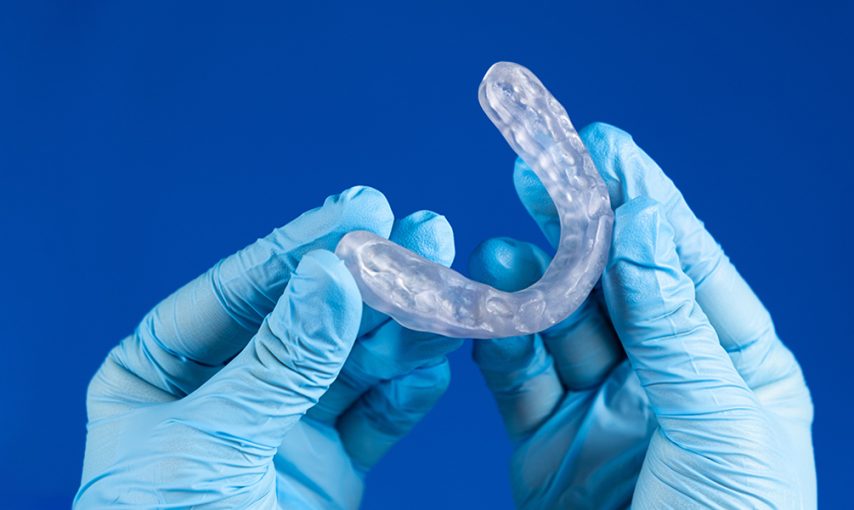Teeth grinding, also known as bruxism, can sneak up on you. Maybe you wake up with jaw pain or headaches. Or your partner hears grinding sounds in the middle of the night. Over time, grinding can wear down enamel, chip your teeth, and cause serious dental issues. That’s where mouth guards come in. But all of them aren’t the same.
If you’re wondering which kind is right for you—or your loved one—you’re in the right place. Let’s break down the types, who they’re best for, and how to get started.
Understanding Bruxism and Why It Happens
Before we dive into mouth guards, let’s talk about why people grind their teeth in the first place. The causes vary, but some common reasons include:
- Stress and anxiety
- Sleep disorders like sleep apnea
- Misaligned teeth or bite issues
- Side effects from certain medications
- Lifestyle habits like excessive caffeine or alcohol use
You may not even know you’re grinding until symptoms show up. Jaw tension, headaches, or worn-down teeth are all red flags.
The Role of Mouth Guards in Protecting Your Teeth
Mouth guards are custom-fit or over-the-counter devices worn over the teeth, mainly while sleeping. They act like a cushion, absorbing the pressure of grinding and protecting your enamel from damage. They also help relieve strain on your jaw muscles, which means fewer headaches and better sleep.
So how do you choose the right one?
Types of Mouth Guards: Which One Fits You Best?
There are three primary kinds of mouth guards used to treat teeth grinding. Let’s explore each.
- Over-the-Counter (Stock) Mouth Guards
- Found at most drugstores
- One-size-fits-all
- Inexpensive
Best for: People who need a quick, short-term solution.
Downside: They’re bulky and often uncomfortable. They don’t stay in place well and provide minimal protection.
- Boil-and-Bite Mouth Guards
- Available at most pharmacies
- Made from thermoplastic
- You boil it, then bite down to mold it to your teeth
Best for: People looking for a better fit than stock guards but still an affordable option.
Pros: Slightly more secure, better comfort.
Cons: Still not a long-term solution. The material wears out quickly and may not offer enough protection if you grind heavily.
- Custom-Fit Mouth Surveillance (From Your Dentist)
- Made specifically for your mouth
- Designed in a dental lab
- Created after taking molds or digital impressions of your teeth
Best for: Anyone with moderate to severe teeth grinding or TMJ issues.
Advantages:
- Superior comfort and fit
- Long-lasting material
- Maximum protection for teeth and jaw
Drawback: They cost more than store-bought versions, but they’re worth every penny if you’re serious about preserving your dental health.
Signs You Need a Mouth Guard Now
Still on the fence? If you’re experiencing any of the following, it might be time to talk to your dentist:
- Morning headaches or earaches
- Sore or stiff jaw in the morning
- Teeth that look shorter or flatter
- Chipped or cracked teeth
- Disturbed sleep due to grinding sounds
These signs aren’t just annoying—they’re your body telling you something’s wrong. Don’t wait until permanent damage happens.
Why Custom Mouth Guards Are Worth It
Let’s get real: it’s your smile, your sleep, and your peace of mind on the line.
A custom-fit mouth guard is like a tailored suit—it just works better. It hugs your teeth, stays in place through the night, and doesn’t make you drool like a faucet.
Quick benefits you’ll notice:
- Less jaw tension in the morning
- Fewer headaches
- Better sleep quality
- No more tooth wear
And if you’ve tried store-bought guards and tossed them aside after a week, you’re not alone. Many patients say a professionally made guard made all the difference.
Where to Get One: Start with a Trusted Clinic
Not sure where to begin? Look for a dental clinic for mouthguards that offers both consultation and custom solutions. Your dentist will assess your bite, examine wear patterns on your teeth, and discuss the best guard based on your needs and budget.
This isn’t a one-size-fits-all situation. A great dental team will listen to your concerns and help you feel confident in your decision.
Local Matters: Finding the Right Care Near You
You don’t have to drive across the city to find great care. If you’re searching for dental clinics that offer mouth guards near you, make sure the provider:
- Specializes in treating bruxism or TMJ
- Offers follow-up adjustments (if needed)
- Has clear pricing and insurance options
- Answers your questions without rushing you
At Family Dental Care, we take the time to understand your grinding habits and sleep patterns. Our team walks you through each step, from digital impressions to final fitting. We’re here for the long haul—not just a quick fix.
Conclusion
Your health matters—day and night. Don’t let teeth grinding steal your rest or damage your smile. A well-fitted mouth guard is more than a piece of plastic. It’s peace of mind.
Schedule a visit with Family Dental Care today. Our dentists in Chicago will help you find the right mouth guard, answer your questions, and support you every step of the way.
Better sleep and a healthier smile are just one appointment away.


